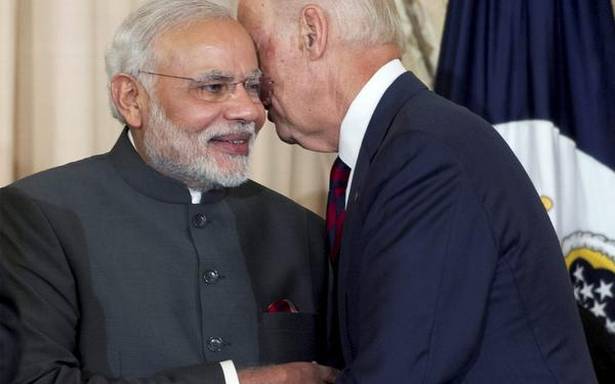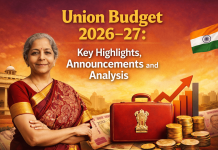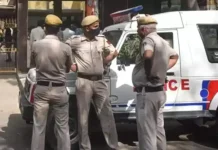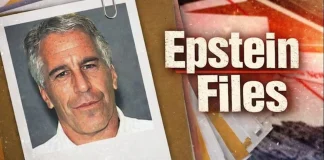The U.S. President also noted ‘that a shared commitment to democratic values is the bedrock for the U.S.-India relationship.’
U.S. President Joe Biden discussed his democratic institutions and norms with Prime Minister Narendra Modi, as per a White House readout of the call between the two leaders.
Also read: PM Modi and Joe Biden look forward to further peace, security in Indo-Pacific region
While the White House said the two leaders talked about a “free and open Indo-Pacific” , it also said that Mr. Biden underscored “his desire to defend democratic institutions and norms around the world” .
He also “noted that a shared commitment to democratic values is the bedrock for the U.S.-India relationship.” This is suggestive of an added emphasis in the bilateral relationship, relative to the Trump administration, which had focused on the security aspect, driven in large measure by growing Chinese aggression and assertiveness.
The language of the readout is significant in the context of the farmers’ protest around Delhi as this has gained visibility in the U.S., with celebrities and members of the U.S. Congress making references to them on social media.
Also read: Analysis | Delhi opts to wait, watch U.S. foreign policy shift
The MEA readout of the call said the two leaders, “noted that the India-U.S. partnership is firmly anchored in a shared commitment to democratic values and common strategic interests”.
Over the weekend, Co-chair of the House of Representatives India Caucus Brad Sherman and some of his colleagues had discussed the “norms of democracy” in the context of the farmers’ protest with Indian Ambassador to the U.S. Taranjit Singh Sandhu, according to Mr Sherman.
On the Indo-Pacific, the White House readout of the Biden-Modi call mentioned freedom of navigation, “territorial integrity” (presumably a reference to China’s aggression along the Line of Control) and strengthening the Quad — India, the U.S., Australia and Japan.
“President Joseph R. Biden, Jr. spoke today with Prime Minister Narendra Modi of India, committing that the United States and India will work closely together to win the fight against the COVID-19 pandemic, renew their partnership on climate change, rebuild the global economy in a way that benefits the people of both countries, and stand together against the scourge of global terrorism. The leaders agreed to continuing close cooperation to promote a free and open Indo-Pacific, including support for freedom of navigation, territorial integrity, and a stronger regional architecture through the Quad,” it said.
There was also a discussion on the military takeover in Myanmar and Mr. Modi and Mr. Biden resolved “that the rule of law and the democratic process must be upheld in Burma,” according to the White House.
“The leaders agreed to stay in close touch on a range of global challenges and look forward to what the United States and India will achieve together for their people and for their nations,” the White House said.
Mr. Biden has already spoken with a number of world leaders since he took office, including traditional allies from Europe (the U.K., France, Germany, NATO), Asia and the Pacific (Japan, Australia, South Korea) and the Americas (Canada and Mexico).
“ Spoke to @POTUS @JoeBiden and conveyed my best wishes for his success. We discussed regional issues and our shared priorities. We also agreed to further our co-operation against climate change,” Mr. Modi had tweeted on Monday night.
“ President @JoeBiden and I are committed to a rules-based international order. We look forward to consolidating our strategic partnership to further peace and security in the Indo-Pacific region and beyond,” he wrote.











